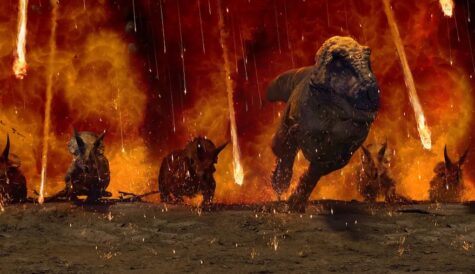
After more than 35 years of operation, TBI is closing its doors and our website will no longer be updated daily. Thank you for all of your support.
TBI Weekly: Exploring the stakes in the clash of Rings and Dragons
Once upon a time, two of the world’s biggest media giants both launched prequel drama series as part of popular fantasy franchises within the same two-week span.
One of the shows was handed the largest budget of any TV series ever, while the success or failure of the other could have major consequences for a network that is currently undergoing dramatic transformation.
As Amazon’s The Lord Of The Rings: The Rings Of Power and HBO’s House Of The Dragon get underway, TBI’s Mark Layton asks, will they both live happily ever after?
Money talks
The long-awaited The Lord Of The Rings: The Rings Of Power landed on Amazon’s Prime Video streamer today, with this new journey into J. R. R. Tolkien’s Middle Earth now the most expensive TV series in the world.
With a production budget of $465m for the first season alone, coupled with $250m spent on securing the rights from the Tolkien estate to make the show, this freshman run comes to an eye-watering total of $715m. That’s more than $89m per episode for season one, and Amazon is just getting started. The show’s five-season commitment is anticipated to cost Jeff Bezos’ firm more than $1bn by the time it is done.
Few companies could afford to spend such a large sum on a single show, but for Amazon, primarily a tech and e-commerce giant that made close to $470bn in revenue last year, that investment is just a drop in the ocean.
Tolkien is very much acknowledged as the forefather of fantasy literature around the world and there are few fantasy IPs as strong as his Middle Earth to fill the gap left behind after HBO’s global hit Game Of Thrones came to an end in 2019 (more on that below, of course).
When you can afford the best, you get the best, and with audiences crying out for more big budget fantasy, this $1bn investment makes perfect sense for Amazon (which has 200 million Prime members, though how many of them use the Video service is open to speculation) as it seeks stand-out content to close that gap between itself and Netflix’s 220.67 million worldwide total.
The Lord Of The Rings also comes with the massive in-built goodwill and demand from both fans of the original literature and Peter Jackson’s well-received early-2000s film trilogy adaptation, while early reviews for the new show have been predominantly positive.
At this early stage, it looks like Amazon’s investment could well pay off, but that could spell bad news for competing fantasy projects that don’t have $1bn to spend and are now fated to direct comparison with Prime Video’s new record-breaking title.
A clash with Rings
While Prime Video might be chasing Netflix’s coat tails in terms of subscribers, it is Warner Bros. Discovery (WBD) that offers the most direct competition to The Lord Of The Rings: The Rings Of Power in the fantasy genre.
To be sure, Netflix is no slouch when it comes to fantasy adaptations, currently building a franchise out of Andrzej Sapkowski’s The Witcher series, while also acquiring rights to both CS Lewis’s The Chronicles Of Narnia and Brian Jacques’ Redwall novels, but it is Game Of Thrones prequel House Of The Dragon that stacks up closest in term of audience expectation and (to some extent) budget.
Launching on WBD’s HBO on 21 August, House Of The Dragon is the first of several planned spin-offs from George R. R. Martin’s global hit, set in the world of Westeros. It too has had a promising critical reception – in-fact, streaming service HBO Max crashed for users in the US as viewers flocked to watch the show upon release. It swiftly received a second season order less than a week after its debut.
House Of The Dragon’s budget stands sat just under $20m per episode for its first 10-part season. For contrast, Game Of Thrones cost around $6m per episode when it started out, rising to $15m in its final season.
This admittedly still huge figure (though not Amazon huge, because nothing really comes close) may offer some consolation to other producers that such exorbitant numbers are not really required to remain competitive, if the show continues to prove a success.
And that is key, because House Of The Dragon really does need to be a success for HBO. The first spin-off to Game Of Thrones was always going to be a big deal for the company, but it is launching at a time when WBD’s new management is making huge cut backs – including across HBO Max originals teams in Europe, where much of the show is filmed.
The remaining team under Casey Bloys will, like others across WBD, be taking a quality over quantity approach to originals, making it all the more important that the titles that are made achieve greater cut through. At a cost of $200m per season, a fantasy flop could swiftly find itself on the chopping block at the newly merged giant currently seeking to make $3bn in cuts.
House Of The Dragon would likely have been the only show truly positioned to step into the shoes of its predecessor as the biggest – and biggest budgeted – fantasy drama series in the world, if it wasn’t for that pesky $1bn blockbuster landing on Prime Video today.
Now it could be a question of just how much fantasy viewers want to see – and if they’d prefer their adventures in Westeros or Middle Earth.





